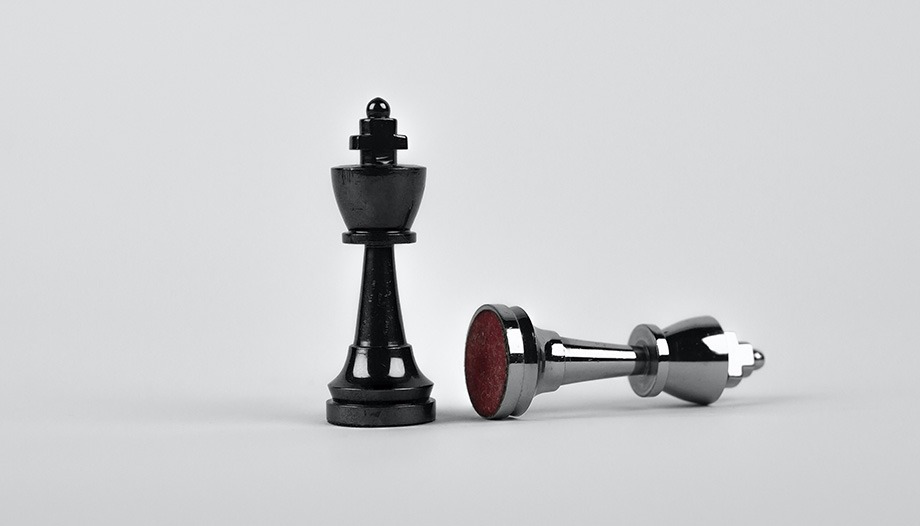The bad guy is always the other. It happens in international politics, in parliaments, in institutions, in marriages and even within the Church. Why can't we get along? There is an explanation: it is called sin and, although it is a term that today has lost much of its meaning, in reality it is the explanation for most of the evils of our world.
Sin, in common language, is related in a childish way, with what is forbidden, not with what is bad, that is why we even see it as an advertising hook in slogans and commercial brands.
The word refers us to pleasure, to adventure, to transgression or to leaving the established. The loss of innocence has become a value because, by erasing God from our lives, we convince ourselves that we are free.
The problem is that, as in those parties that teenagers organize, believing themselves to be older, when their parents are not at home; in the end, freedom ends in disorder and, sometimes, with the police or the ambulance at the door.
To speak of sin today, in our secular and apparently adult and self-sufficient societies, is an anachronism because we live in the belief that there is no one above us, that we are accountable only to our own conscience -which curiously enough is usually a merciful and understanding judge of ourselves and demanding and inquisitive with everyone else-.
To ignore sin, or rather, the concupiscence or inclination to evil that all human beings have, distances us more and more from reality and submerges us in a world of unrealizable fantasies.
That is why many couples get married really thinking that they will do it forever, but eventually see that it is impossible; that is why many politicians convince themselves that their ideas will put an end to the world's problems and then cannot help but spoil it more and more; that is why national politics is increasingly polarized and lacking in consensus; that is why the major international blocs sharpen their knives or rather ready their nuclear briefcases.
Since "I" am the measure of all things, the only just judge who knows right from wrong, the bad guys are always the others. It does not cross my mind to think that the person, or the political party or the nation in front of me might also be legitimately seeking good in their own way.
We magnify their defects and mistakes, and minimize their virtues and successes. And I am not only talking about knowing, as any intelligent person knows, that we can all humanly fail (the best soccer players miss a penalty), but also about realizing that behind my intention there is easily hidden, unconsciously, a certain selfishness. And selfishness (economic, emotional, power, group...) is the natural enemy of the common good.
A marriage is not the cohabitation of two individual interests; a people or a nation is not the sum of small individualities.
We need to recover the "we" in front of the "I", and that requires effort, because you and I have a natural resistance to donate ourselves, to lose in benefit of all of us winning.
Ignoring sin does not make us freer, but more slaves to our selfishness, a force that begins by destroying those closest to us, but that spreads like a virus and ends up killing us ourselves because we are made to live in family, in community, to be a people. Hence the suicidal drift of the West, ever older and without generational replacement.
The "know thyself" of the Delphic oracle was missing a fundamental premise: God. Without knowing God and his message, we cannot fully know ourselves and will continue to sin - yes, that old word - or, in other words, to destroy the ties that bind us to our neighbor and give us meaning.
The men and women who work for the common good are those who do not remain on the surface, but who discover, behind the layer of makeup with which we all face the world, a weak being capable of being dragged down by evil at the first sign of change.
He who knows himself, discovers a root wound that inclines him to seek his own interest over that of others and fights against it. And he who is able to reach there, does not remain in the sadness of discovering his own failure; but finds much lower, in the depths, a desire for good, for truth, for beauty, for love.
St. Augustine, for example, a great sinner, discovered this and left us this phrase with which I would like to close this article, leaving the sweet taste of hope. And the fact is that, in spite of our sins, which are many, "God is closer to us than we are to ourselves".
Journalist. Graduate in Communication Sciences and Bachelor in Religious Sciences. He works in the Diocesan Delegation of Media in Malaga. His numerous "threads" on Twitter about faith and daily life have a great popularity.








